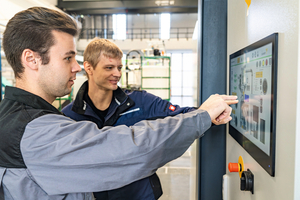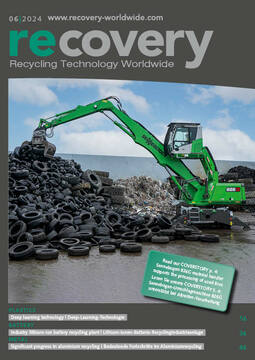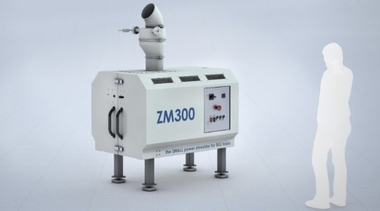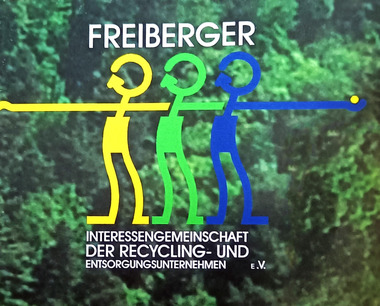New shredder system at TU Freiberg enables digital
processes for battery recycling
A research team at TU Bergakademie Freiberg is using a new shredder system to investigate how battery cells can be shredded in such a way that as many of the raw materials they contain can be recovered efficiently. In the new plant, the researchers are also capturing highly volatile substances that were previously lost.
Sensors and cameras record the processes and send the data to a database to be analysed by artificial intelligence. This will make recycling more efficient and economically more attractive. This makes TU Bergakademie Freiberg the first research institution in Germany to conduct recycling research on an online-capable shredder system in conjunction with a special research database. This database not only collects the results from the plant, but also brings together a lot of other data from the TU Bergakademie and its partners at the Freiberg site, such as the Helmholtz Institute Freiberg and the Fraunhofer THM.
The new shredder system makes it possible to shred used battery cells weighing up to 2500 g in a single step. This produces particles between 0 and 20 mm, in particular fine particles known as black mass. This contains the valuable raw materials nickel, cobalt and lithium. “Our aim is to recover these materials as completely as possible. From 2027 or 2031, this will be required by the new version of the European Battery Regulation for the disposal and recycling of battery waste. The quality of the black mass is important in this context. Contamination by other components of the battery cell such as aluminium, copper or plastic should be avoided. The new plant enables us to carry out extensive experimental studies and thus optimise the quality of the black mass,“ says Professor Urs Peuker, Director of the Institute of Mechanical Process Engineering and Processing Technology at TU Bergakademie Freiberg.
Safe shredding of discharged batteries
The new shredder technology can be used for device batteries from power tools or e-bikes as well as for larger cells from electric and hybrid vehicles. The final black mass is produced by other pilot-scale steps available at TU Bergakademie Freiberg, such as sieving, sifting or magnetic separation. The shredder that is now available is an important step that enables the safe and sustainable shredding of discharged batteries.
“Another advantage of the system is its closed design. The volatile electrolytes that escape when the batteries are shredded can thus be recovered. This increases process reliability on the one hand and the recycling rate of all components on the other,“ explains Alexandra Kaas, Group Leader for Recycling.
Complex batteries require
new recycling processes
The first tests for shredding the batteries began in the summer. New sensors will soon be used to connect the shredder system to databases and analyse data using artificial intelligence. “Battery recycling has become more complex – the classic simple methods and tools are reaching their limits. We are developing and demonstrating the future of recycling technologies using electromobility, a key technology for Saxony,“ explains Peuker. “This is only possible with live data acquisition, big data and AI.“
Networked recycling research
at the Freiberg site
The research facility was acquired as part of the “InfraDatRec“ project, which was funded by the Federal Ministry of Education and Research from the “Energy and Climate Fund“ special fund with a total of around € 7 million until the end of September 2024. The joint and coordinated collection, evaluation and use of the data enables researchers to understand and improve the entire process of mechanical and chemical battery recycling through to the re-synthesis of new battery materials and to further develop it specifically for application. The project is being coordinated by the TU Bergakademie Freiberg. Scientists from the Helmholtz Institute Freiberg for Resource Technology at the HZDR, the Fraunhofer Institute for Ceramic Technologies and Systems and the Fraunhofer Institute for Integrated Systems and Device Technology, both working at the Freiberg Fraunhofer Technology Centre for High Performance Materials, are also involved.




